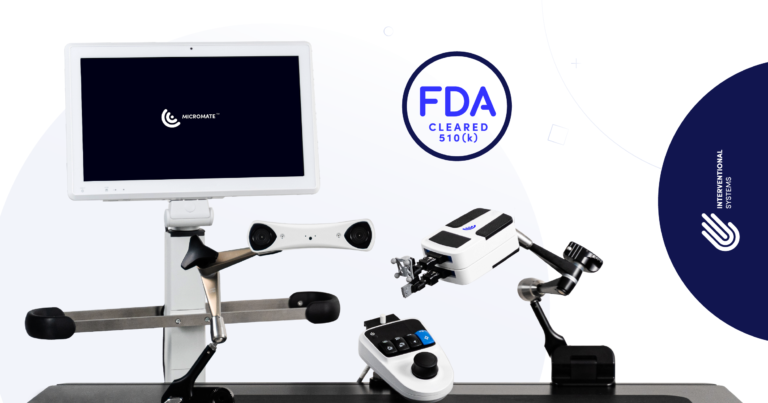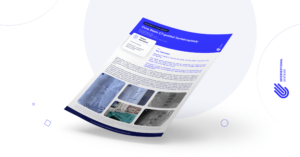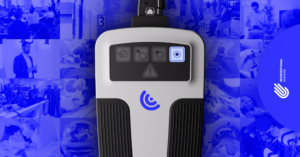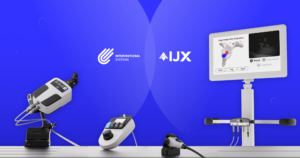Micromate™ is now the first needle-based intervention robot available for sale in the United States that is compatible with both fluoroscopy and computed tomography (CT).
Interventional Systems is thrilled to announce that Micromate™ has been granted a new 510(k) clearance, allowing the commercial sale of the robotic system in the United States for percutaneous procedures using CT optical navigation, such as biopsies and ablations, to diagnose and treat conditions in the chest, abdomen, and musculoskeletal structures. This latest FDA clearance further expands the scope of Micromate™, which has been available in the US since 2021 for any percutaneous needle intervention performed under live imaging using Cone-Beam Computed Tomography (CBCT), Fluoro CT, or a Fluoroscope. The miniature robot was also cleared for integration into third-party navigation stations. As Pedro Costa, CEO of Interventional Systems, remarks,“This clearance is a long-awaited milestone for us, and it allows us to meet the growing demand for our system in the US. We are already in the process of executing the first installations overseas, bringing the benefits of our robotic platform to US patients. We designed Micromate™ for versatile use within the scope of work of any IR/IO specialist, and we expect it to help hospitals gain efficiency in an era where both demand for precision and staff shortages are pressing concerns.”Srdjan Milosavljevic, Chief Technology Officer of Interventional Systems, also highlights,
“The clinical data reviewed by the FDA as part of our submission demonstrates that we provide high accuracy in all major anatomical regions, making procedures faster and safer. We believe that both large institutions and ambulatory centers can benefit from Micromate™’s unique features, and we will make sure we will always keep cost-effectiveness in mind when building on our innovative robotic technology.”
Celebrating a Year of Success in Europe
Micromate™’s planning and navigation station, which enables the use of a navigation workflow with CT scanners, was successfully deployed for the first time a year ago, at the St. Antonius Hospital in the Netherlands. Since then, it has been used regularly in several clinical sites across Europe for any indication and procedure requiring needles or instruments from 8-21G.Dr. Marco van Strijen, St. Antonius Hospital, NL
Dr. Alexander Kupferthaler, Ordensklinikum Linz, AT
Dr. Dimitrios Filippiadis, ATTIKON University Hospital, GR
Previous slide
Next slide




